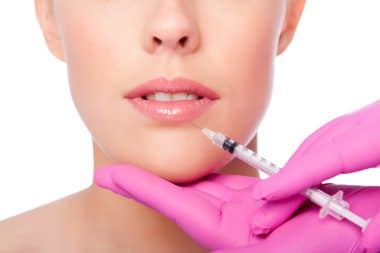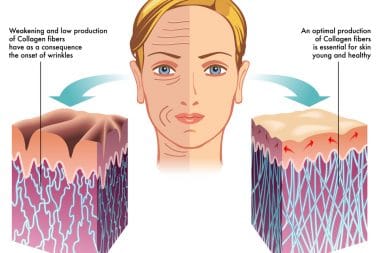Hormones, and especially sex hormones, have a profound influence over many aspects of our health. From our moods and energy levels to bone health and the aging process, sex hormones seem to govern it all. And at no time is this more apparent than menopause.
Shifts in sex hormones are known to be the main culprit behind most menopause symptoms like hot flashes, weight gain, and vaginal dryness [1]. And nutrition and lifestyle changes are known to provide some help in managing menopause hormonal imbalances and symptoms, but also in reducing chronic disease risk in postmenopausal women [2]. One nutritional strategy that can help women going through menopause is the ketogenic diet, also simply known as keto.
What is the Keto Diet?
While there is plenty of research on how keto affects metabolic and neurological health, its direct influence on hormonal health is less studied. According to a study article published in the journal Obesity, a keto diet rich in monounsaturated fat and supplemented with ω3â€fatty acids did not lead to major changes in fasting total testosterone, free testosterone, and cortisol. However, it did lead to a 28% decrease in insulin and a 64% decrease in leptin. [4].
Such findings are important for women since both insulin and leptin play major roles in female reproductive health. Elevated insulin is associated with polycystic ovary syndrome (PCOS), while low leptin levels are associated with menstrual irregularities in premenopausal women [5]. In postmenopausal women, weight gain increases your risk of insulin resistance and high leptin levels have been linked to more severe hot flashes [6].
Studies on the effects of keto diets on female hormones have mostly focused on overweight premenopausal women, a category that is more prone to experiencing fertility issues associated with PCOS. Such studies found that the keto diet balances out hormones by lowering insulin levels [7]. In healthy, adolescent girls, however, the keto diet causes irregular periods [8].
Keto and Menopause
Because there are no studies looking into how keto affects women in menopause, we can’t really say if this diet will or will not work for you. As already explained, the diet has a positive impact on insulin levels, which can help combat insulin resistance while you’re going through menopause. And because this diet is effective for weight loss, it can also help you maintain a healthy weight. Furthermore, lower leptin levels on this diet may, in theory, help reduce the severity of hot flashes. The diet’s neuroprotective effects are also well-documented, and this may be beneficial for women going through menopause.
So, if you’re struggling with weight gain, pre-diabetes, and brain fog, the keto diet may help you regain your health. The diet, however, comes with its own fair share of side effects. These side effects are often called “keto flu” due to their resemblance to the real flu. But unlike true flu, which is caused by a virus, the keto flu is caused by things like electrolyte imbalances and dehydration. These are only temporary problems that happen when you switch to a low-carb diet and that are easy to manage with balanced fluid and electrolyte intake.
Takeaways
The keto diet is known to be effective for things like weight loss, diabetes management, and neurological conditions. But its effects on hormones is less understood. The diet, which is very low in carbohydrates, has the most pronounced effect on circulating insulin levels and leptin. Both hormones are important during menopause since they can lead to weight gain and diabetes if elevated. On a keto diet, these hormones are drastically lowered, which is good news if you’re trying to lose weight and possibly even control hot flashes. But until more research on the diet’s effects on sex hormones, in particular, is carried out, we can only speculate.
References:
- Informed Health Online. Menopause: Overview. Institute for Quality and Efficiency in Health Care (IQWiG); 2006 – https://www.ncbi.nlm.nih.gov/books/NBK279311/
- Hagey AR, Warren MP. Role of exercise and nutrition in menopause. Clinical Obstetrics and Gynecology. 2008 Sep;51(3):627-41. – https://www.ncbi.nlm.nih.gov/pubmed/18677156
- Masood W, Kalyan R. Uppaluri. Ketogenic Diet. Treasure Island (FL): StatPearls Publishing; 2018 Jan https://www.ncbi.nlm.nih.gov/books/NBK499830/
- Volek JS, Sharman MJ. Cardiovascular and Hormonal Aspects of Veryâ€Lowâ€Carbohydrate Ketogenic Diets. Obesity. Sep 2012 – https://onlinelibrary.wiley.com/doi/full/10.1038/oby.2004.276
- Chou SH, Chamberland JP, Liu X, et al. Leptin is an effective treatment for hypothalamic amenorrhea. Proc Natl Acad Sci U S A. 2011 Apr 19;108(16):6585-90. – https://www.ncbi.nlm.nih.gov/pmc/articles/PMC3080974/
- Huang WY, Chang CC, Chen DR. Circulating leptin and adiponectin are associated with insulin resistance in healthy postmenopausal women with hot flashes. PLOS One. April 27, – https://journals.plos.org/plosone/article?id=10.1371/journal.pone.0176430
- McGrice M, Porter J. The Effect of Low Carbohydrate Diets on Fertility Hormones and Outcomes in Overweight and Obese Women: A Systematic Review. Nutrients. 2017 Mar; 9(3): 204.- https://www.ncbi.nlm.nih.gov/pmc/articles/PMC5372867/
- Mady MA, Kossoff EH, McGregor AL. The ketogenic diet: adolescents can do it, too. Epilepsia. 2003 Jun;44(6):847-51. – https://www.ncbi.nlm.nih.gov/pubmed/?term=ketogenic+diet+irregular+period








Reply